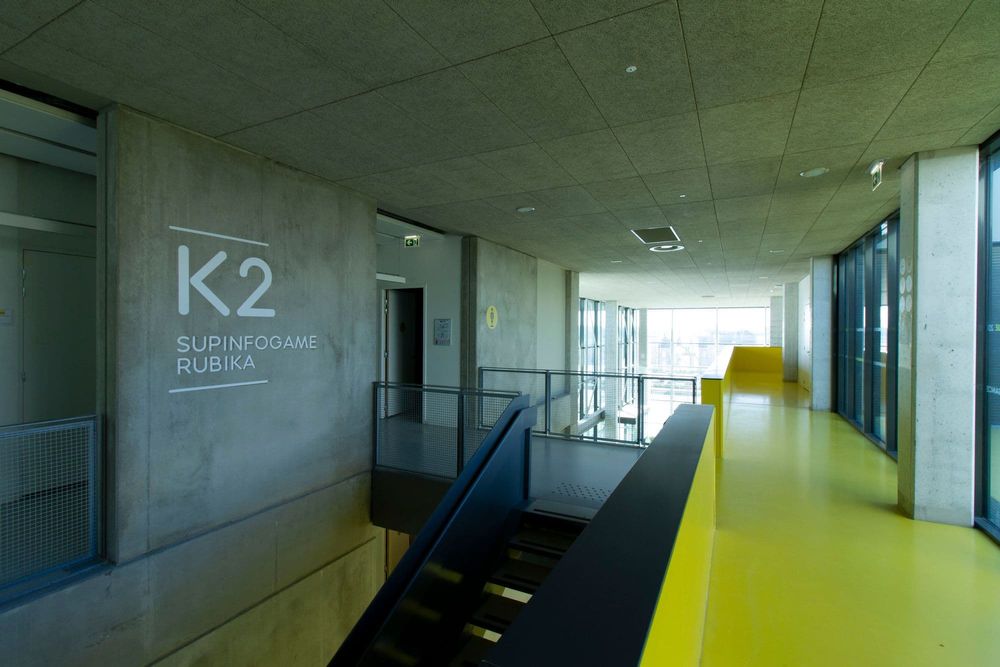
Insider's Guide: RUBIKA
Maxime Bourstin, a 23 year old student from Valenciennes, France, gives us some insight into studying at RUBIKA.

Maxime Bourstin, a 23 year old student from Valenciennes, France, gives us some insight into studying at RUBIKA.
Whether you’re already at school, looking to find a new school or even considering moving overseas to study, nothing beats hearing from the students themselves! We speak to Maxime Bourstin, a 23 year old student of FX/CGI, about the ins and outs of studying at RUBIKA in Valenciennes, France.
 Discover | The RookiesAndrew McDonald
Discover | The RookiesAndrew McDonald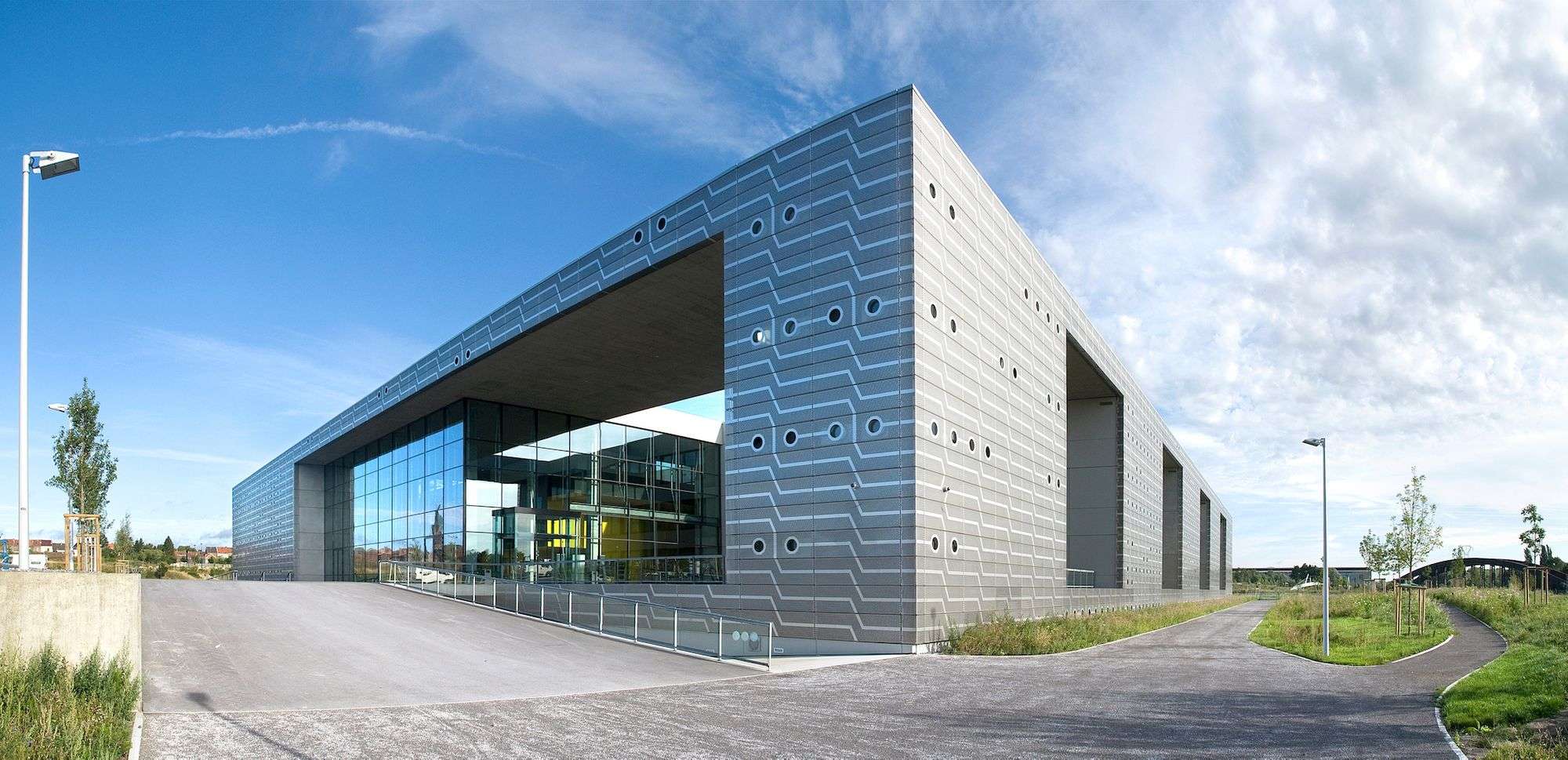
I believe it’s part of Anzin.
There is a tramway nearby but I don’t use it often. I often come to the school on my bike or on foot.
I’m beginning my fifth and last year at RUBIKA.
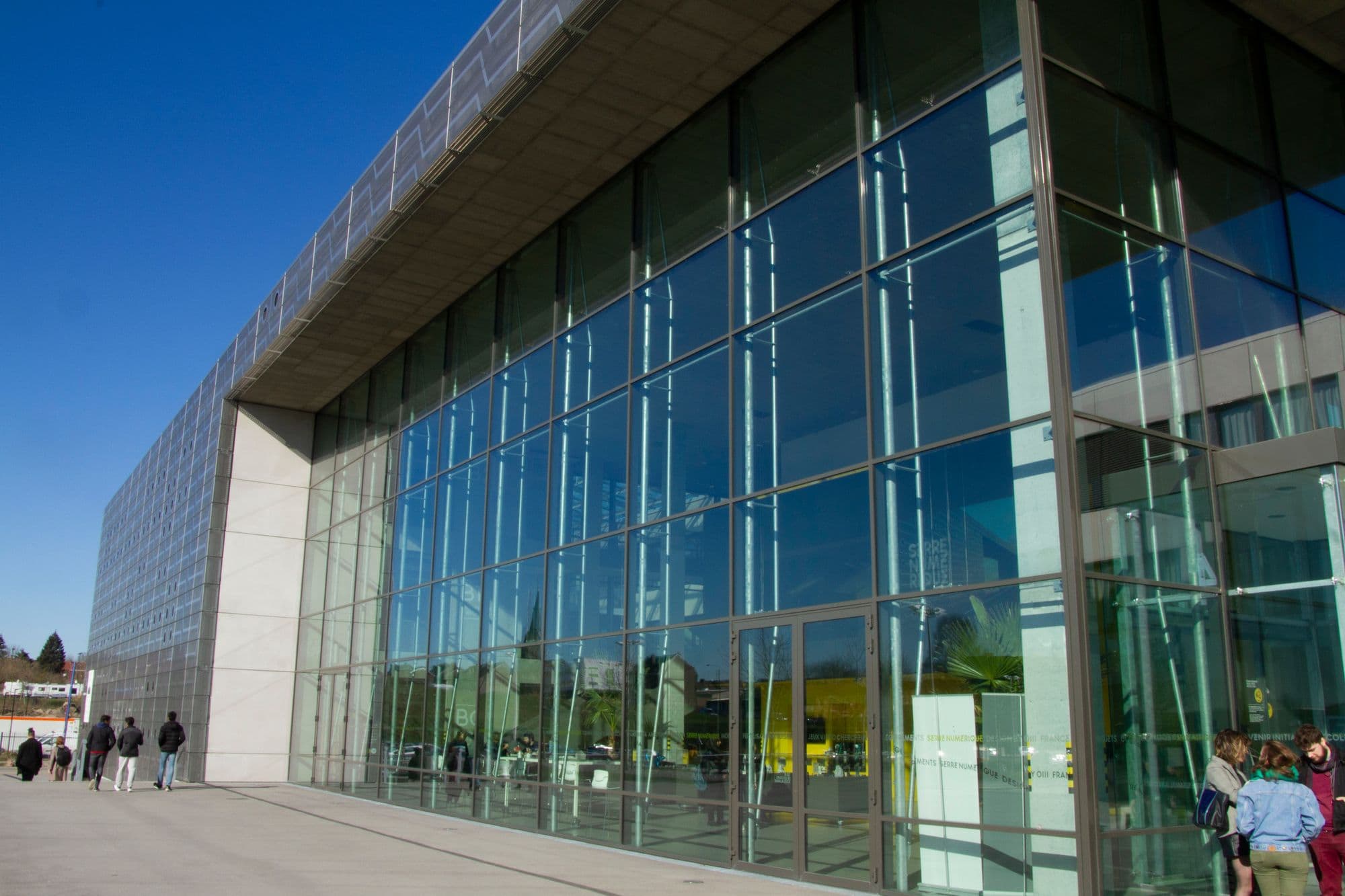
It wasn't an obvious choice to begin with as I wanted to study photography but wasn’t able to be selected for the school I wanted. I’ve always liked working on the technical part of images and so I applied here because I liked the animation portfolios of the students online, and the way to work in the industry.
We have the luck to be quite close to our professors. For the most part, we know them since year 2 or so, sometimes even longer. As of right now, our teachers are more here in class to help us do our work on certain topics they know. Before that, it was more about understanding what the expectations were regarding what was taught and then organising yourself to do it in the time you had.
Today, I find myself to work best when being on campus. I’ve stopped working from home since I find it quite hard to concentrate. In the same manner, I try as much as I can to not work late as I find it quite inefficient. I’m usually the one organising the work for the team so I often find myself talking to the others to know what they’re up to and how much time they think this particular task should take. I then keep track of these tasks on a schedule made in Google Sheets. During an internship, I worked with ShotGrid which I find quite complete yet very complex for a student short film.
Know yourself. The hardest thing at first is to take and give constructive criticism. I’ve seen lots of my friends through the years struggling to tell the others what they truly thought and being then disappointed by the final result.
I think it’s important to know your strengths and weaknesses and to understand other’s. It’s the only way to truly talk to others in a work environment and to do the best you can as a team.
I think it’s also important to point out that you don’t have to be an artist to study animation/3D. I’ve always been quite bad at drawing but I've brought a lot of technical skills and also cultural references which made me as valuable as the ones with more artistic skills. Organising and planning is also a huge skill required to truly embrace teamwork.
When I walk outside, maybe the first thing I see is this huge forecourt with a basketball terrain and a tiny pond. Behind this, there’s old houses and a big parking lot. The coolest thing is probably the sky. In the north of France the sky can be quite colourful at sunset which I like a lot.
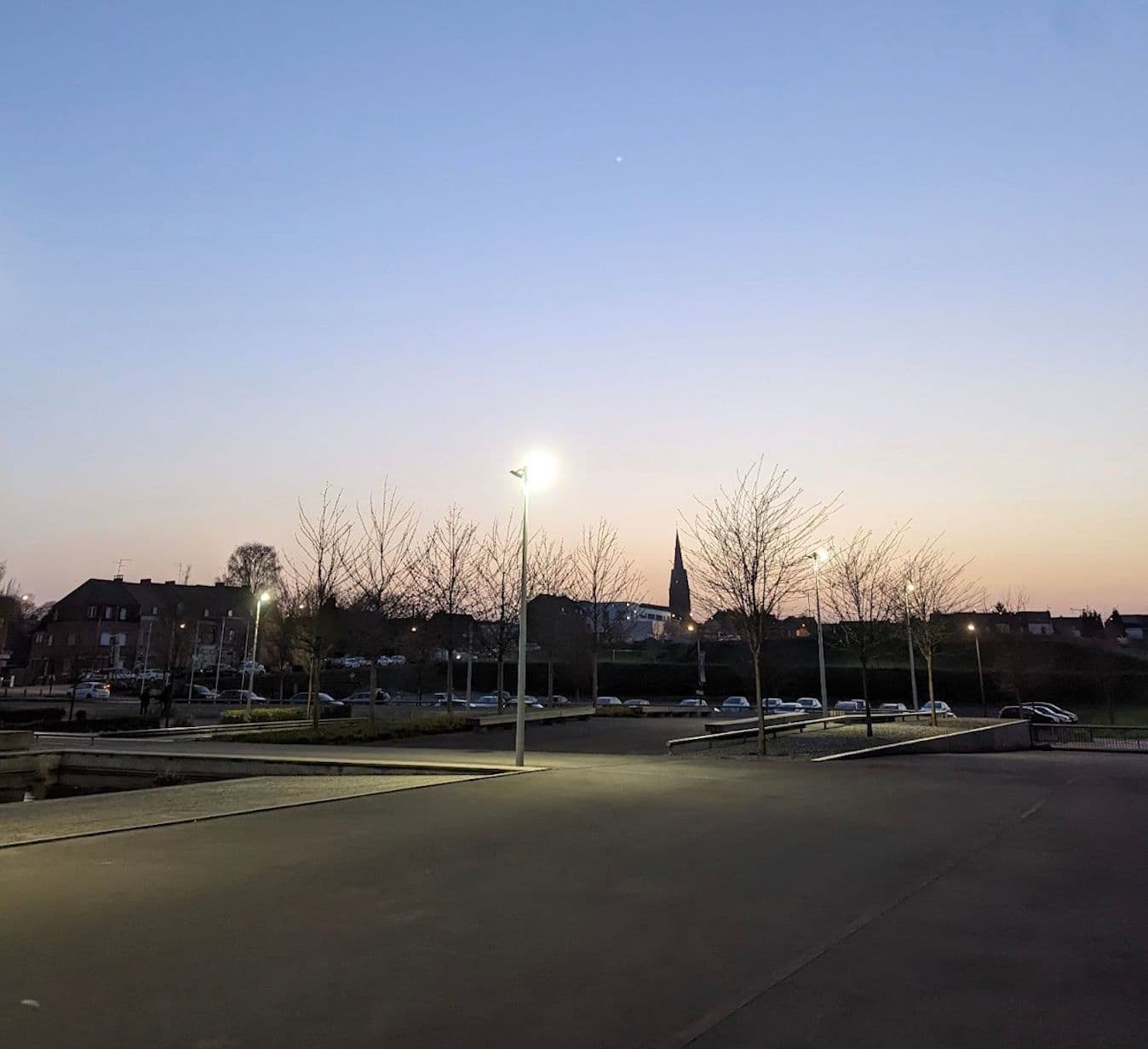
To be honest, there’s not much to do near RUBIKA. I usually meet up with my friends in the center of Valenciennes. There you can find bars, restaurants and many activities. It’s also where most of the ‘older” students live. If you take the tramway you can also go to the cinema but I find it a bit far and a bit too expensive.
I would say Le Camel. It’s a tiny french bar with a particular atmosphere to it. It’s a must visit when you come to study at RUBIKA since it’s one of the bars where you can meet other students. Lots and lots of parties and gatherings have happened there; it’s part of the school culture in my opinion.
Judgment. I think that a lot of students look at others and have pre-made ideas about others. Unlike other schools, we don’t live near a huge city with tons of people and activities to do. We often have to initiate things between students and judgment or predetermined ideas is a big barrier.
I’m not sure there is one. We have three very different kinds of students since there’s 3 majors (Animation, Video Game and Design). Each of these groups have their own way of clothing themselves. For animation students I would say it’s actually quite casual. I’ve seen people walking shoes-less in the main hallway.
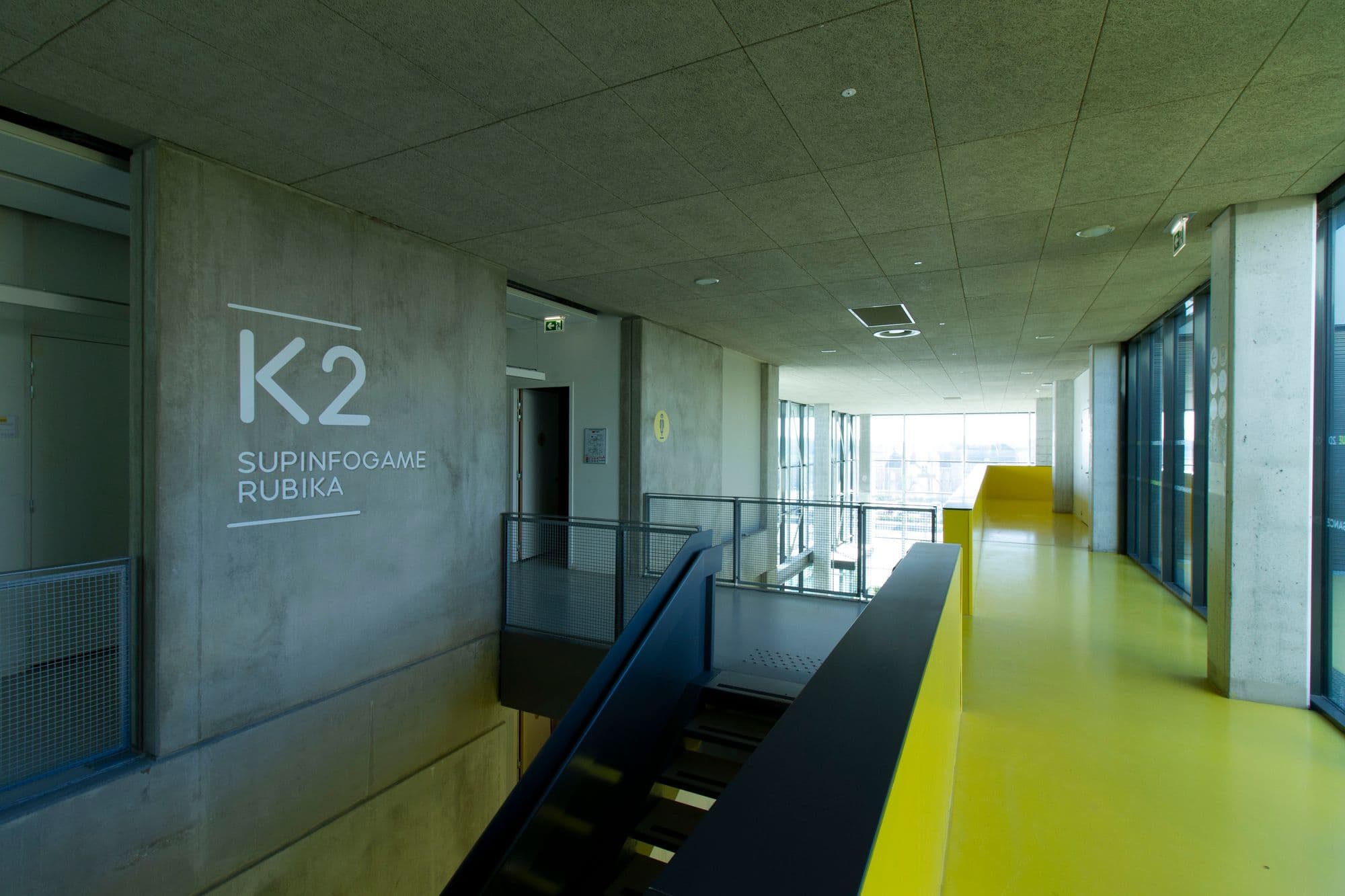
With a group of friends we decided to create an alternative bureau, focused on doing easy/fun activities and invite everyone to do the same. In the span of 3 years we went from being only 20 to a group of 300, for which we had the honour of throwing a big party for! It’s quite an achievement for the school.
Today, because of the effort of different student groups, we have a basketball league, a volleyball club, boxing/fighting course and multiple music related groups! We are currently looking to include many more activities and to help others share their passion and do more.
I think there’s multiple groups of people who like different things and different topics, it feels like we are in a league of our own when looking at students from the local university. We don’t interact much with external students which makes us a little sheltered in this city.
Legend has it that the legendary French Dj Breakbot was a student of the school. It’s true. We’ve been wanting to ask him to come back for so long to mix or just to share some experiences!
Probably first go to the Rhonnelle Park and gather with a lot of students for a drink, and then go to a bar like Le Camel. Then finally, go to a house party where students can sometimes have huge speakers and a turntable, to listen to Techno music.
Lidl. It’s near the school, it’s cheap and you can find a lot of food there. Lots of people gather everyday at 12 to eat there.
We’ve been able to gather more than 120 people for an evening premiere of a Rap Contenders parody we made with many students. It was an hour and a half long show where basically contenders had to diss others in a video-clip. It was really not so respectful but at the same time really a fun way to bond with others. It was full of inside jokes and fun segments and also some quite creative ones too. The fact that the school agreed to let us do it and broadcast it on the big screen was really strange but cool!

I think it was during my summer internship where I had to do FX on an older version of Houdini that what we have available at school. It was a challenge to not be able to use the most recent tools that I knew were available.
In my opinion, the school isn’t here to teach us softwares or technical knowledge. I think the school is here to help us understand how to work as a team, to organize the work and to combine people’s strengths to achieve a common goal. I can see that in the way each year I’ve had to work on a team project, I’ve been able to work faster and more efficiently by knowing when to ask for help and when to do it myself. The rest of what we learn, you could learn it on your own even if it’s true that having a professional to answer your questions helps a lot.
It depends on the period. To be honest, I’ve been struggling with doing personal projects for the most part of last year. Because of the time I’ve had to invest in school projects and also to still be able to rest. I’ve however worked a lot on more Motion Design oriented projects for the alternative student bureau I’ve made with some friends which I’m quite proud of.
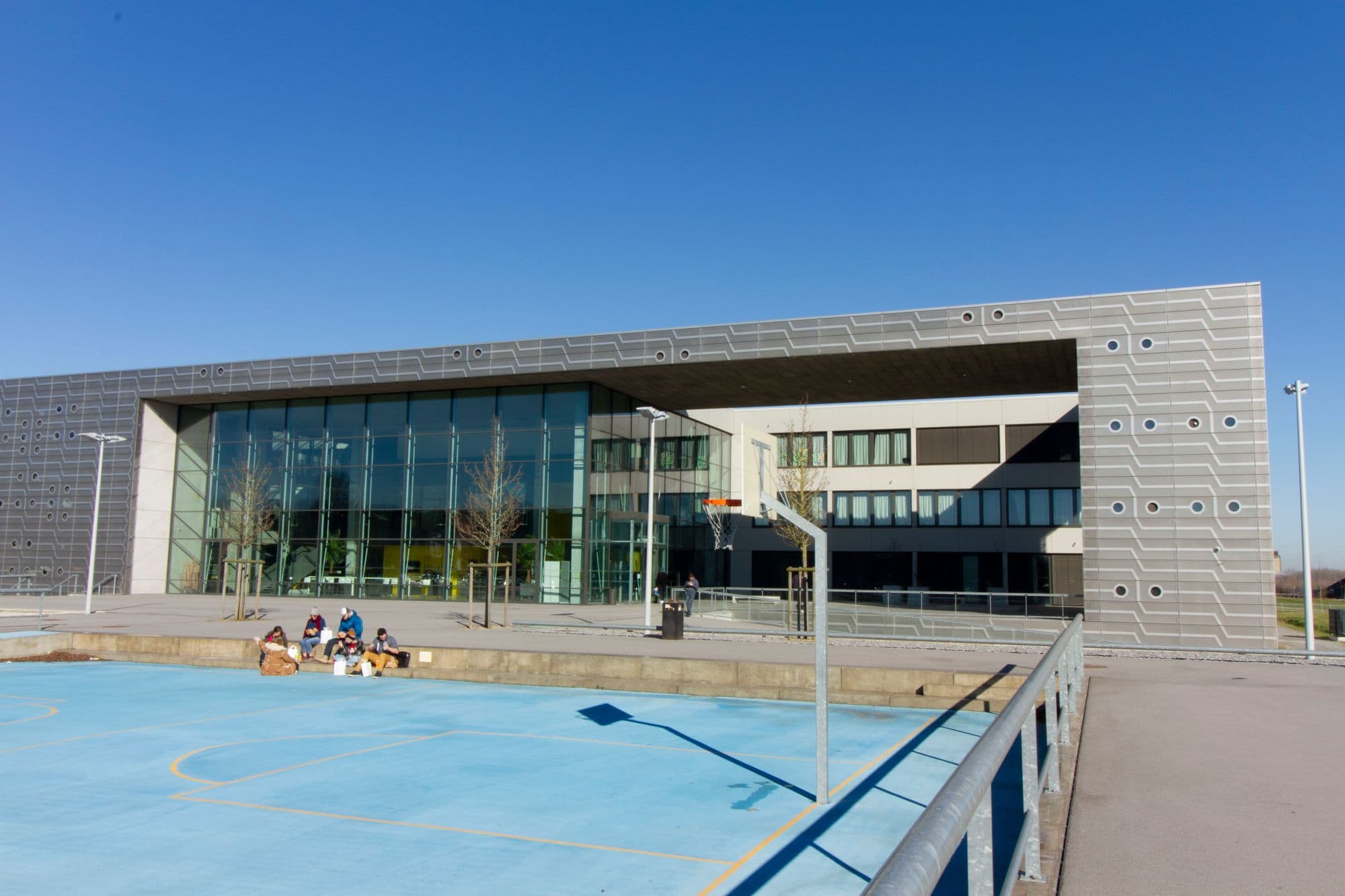
Communication. I’ve been before being in this school in another renowned school in Paris and over there the managing team didn’t seem to care at all about the students. Here at Rubika, we had many occasions to express ourselves regarding school policy and the managing team value immensely student input.
I would say crunch-culture. I know it’s inevitable and even if the school tries to do their best to mitigate it, I still think there’s more to do. It’s a delicate balance since you have to adapt to the industry.
Buy table-soccer first then maybe add some sport facilities and a true student restaurant to be able to eat real meals for cheap during lunch.

I would say mostly Instagram for purely visual composition and movies/tv series for more cinematic work and screenplay. I would recommend ShotDeck and FilmGrab to get high quality stills of movies.
I’ve always loved to experiment with different techniques and tools and I often find myself trying first to imitate what I’m seeing and then mixing it with other inspirations. I’ll do mood boards occasionally to help share my ideas but I usually save a lot of images on instagram to then have access to the artists profiles.
I love to use more photography and live-video references to put and use in animation work.
Nothing regarding 3D animation as of now but I’m trying to do an After Effects setup to emulate windows 95 UI right now! I’ve also been trying to write a short film during the summer break but I find it quite hard to put my ideas on paper as of today.
I had an internship during this summer break and I quite liked the atmosphere and the company. I think they liked me too as one of the producers proposed to meet again in a year.
I called my mom saying I had already found a job for next year!
I hope to be able to work in a company like this one at first to get myself into the industry. Then I really don’t know what to expect. Maybe a bit of freelance work or to go abroad who knows?
Maxime Bourstin loves learning and also creating images and inspiring people. You can find more of her work on his website and Instagram.